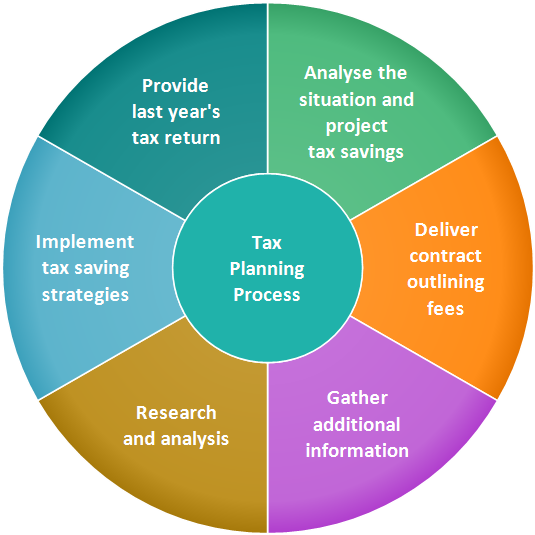Business tax planning is the analysis of a financial situation or strategy from a taxation standpoint, the persistence of tax planning is to ensure tax efficiency, and through tax planning, all foundations of the financial strategy work together in the most tax-friendly manner possible.
IZYAN Law consultant’s tax practice brings with it over four decades of experience in dealing with the complexities of Pakistan’s Taxation system. Our tax experts are adept at finding answers to business problems across varied sectors, as well as objectively analyzing solutions proposed by others.
Our team of experienced professionals offers sound, dependable, and cost-effective tax planning and compliance services to both Pakistani and International clients that are controlled and coordinated from our Lahore headquarters and delivered from our offices throughout Pakistan including capital cities i.e. Peshawar, Islamabad, Quetta, and Karachi. In keeping with IZYAN Law consultant’s value proposition, our team of experts go that extra mile – establishing credibility with tax authorities, while keeping a tab on the frequent changes and amendments made to tax laws. We also ensure that our clients are not left in the dark, making it our business to keep them abreast with important changes made to Pakistan’s tax laws and reminding them about impending deadlines, through frequent tax alerts, reminders, a tax calendar, etc.

BUSINESS TAX PLANNING PROCESS IN PAKISTAN
Tax planning is a process of looking at various tax options in order to determine when, whether, and how to conduct business and personal transactions so that taxes are eliminated or reduced.
There are countless tax planning strategies available, particularly if you own a small business. Some are aimed at your individual tax situation, and some at the business itself. But regardless of how simple or how complex a tax strategy is, it will be based on structuring the transaction to accomplish one or more of these often overlapping goals:
| Provide last years’s tax return; | Gather additional information; |
| Analyse situation and project tax savings; | Research and analysis; and |
| Deliver contract outlining fees; | Implement tax saving strategies. |
Table: Tax Planning Goals
AN ESSENTIAL COMPONENT OF THE OVERALL FINANCIAL PLAN

Careful planning throughout the year can assist you in reducing the taxes you pay – as well as help you achieve your financial goals. The following guide provides an overview of tax rates, credits, deductions, and related considerations that may apply to you.
Tax planning should not be done in isolation, but instead should be driven by your overall financial goals and integrated with your total financial plan. By developing and implementing appropriate strategies to lessen or shift current and future tax liabilities, you can improve your prospects of meeting long- and short-term objectives. For example, accurately projecting your income taxes can help you determine the cash flow available to you in the coming year.
Keep in mind that tax laws are often complex and frequently change. As a consequence, you should consult your tax advisor before making investment and tax decisions.
TAX PLANNING SERVICES
While managing slightly, tax can be one of the most nerve-wracking and possibly precarious aspects of working. With expert knowledge and careful planning, however, you can achieve both full compliance and good retention.
As a widely-recognized industry leader in the field of tax planning, we will make the most of your individual situation. Our services include:
FINANCIAL PLANNING FOR CONSULTANTS
Making the most of your personal financial situation and leveraging any benefits provided by the local authorities.
TAX COMPLIANCE
Surely the most important of any contract overseas is to ensure that you remain fully compliant in the eyes of your host country. A key aspect of our service is to ensure that this is always the case by means of accurate planning before the fact, and by taking care of your local tax return for you.
EXPATRIATE TAXATION
Contracting abroad presents a number of advantages from a tax perspective, but care must be taken to remain compliant both in your host country and at home.
OFFSHORE TAXATION ISSUES
There are many misconceptions and inaccuracies that are often repeated with regard to offshore tax. Depending on your circumstances, widely divergent laws may apply, and varying advantages may be enjoyed, but detailed local knowledge and stringent attention to detail are required: There is no “one-size-fits-all” answer to questions such as these.
With our help, you can make the most of advantageous situations, and avoid the common pitfalls of international tax. We will guide you at every stage of your contract, and take into account every detail of your personal situation in order to maximize your retention and compliance.
In essence, if there is anything you are unsure about, we can help: from the most basic question to the largest project. In case of doubt, contact us, and we will help you make the most of your opportunity.
OFFSHORE TAXATION ISSUES AND ADVICE
A great deal has been written over the years about offshore taxation, offshore bank accounts, offshore trusts, offshore payments, and offshore tax havens. It is certainly worth thinking very carefully before entering into any form of offshore tax planning arrangement that deals with any of these issues.
To begin with, it is important to clarify that there are very few individuals who are actually working offshore – and most of them tend to be in the Oil and Gas industry, working on oil platforms or in similar locations. There are specific regulations within tax law covering these issues, and it is worthwhile speaking to a specialist if you fit within this category.
In the majority of cases, offshore facilities are used to reduce taxes which on the face of it is a good thing but the methods used often do not meet the requirements of the relevant local or international tax compliance rules. For example:
Offshore trusts have been legally used in the past from the UK, for an individual working in the UK and adhering to all of the relevant UK tax rules for Trusts. If, however, the individual then moves to a contract in Afghanistan, India, Pakistan, EU Member Country, or the Middle East and is working in (and therefore under the jurisdiction of) that country, the same tax rules for trusts will not apply, and therefore income going into the trust may be viewed as fully taxable. This will result in an additional tax bill, on top of the cost of the trust.
The lesson here is that ensuring tax compliance when working abroad (or indeed at home) is very important – but many offshoring opportunities can work against that compliance when considered in a wider context.
There are things that you can legally do to ensure that your tax compliance is managed effectively and that your tax liability is minimized.
We recommend that you contact our international tax planning specialists for appropriate advice, and allow us to structure a solution that is relevant to your circumstances.
INTERNATIONAL TAXATION COMPLIANCE
Whether you are working on a contract assignment overseas or in your home country, some things never change. Tax will be due where money is earned. However, ensuring your compliance with the relevant tax legislation is a complex process – especially when multiple countries and tax authorities are involved.
For example, you need to therefore be aware of the issues of tax compliance, including:
- Tax residency and the 180 days rule;
- Local tax legislation in the working country;
- Offshore ex-pat regulations and restrictions;
- Issues of interactions between domicile rules and the length of contract/assignment; and
- Opportunities to ensure that your international earnings are managed in a tax-efficient way.
… to name just a few.
When moving to a new country of work, it is not enough to continue operating as you do at home. The same regulations rarely apply and unfortunately, ignorance of local tax issues is not a defense when dealing with tax authorities. It is therefore essential that you and your agency understand the issues involved and that you speak to an expert about your position to confirm your international tax compliance.
At IZYAN Law consultant’s, we fully understand the issues of international tax compliance. We simplify the international taxation compliance planning process for our clients, and we provide local expertise and international tax experience to ensure that you have peace of mind by ensuring tax compliance when you are working abroad. We recommend that you contact our international tax planning specialists for appropriate advice.
INCOME TAX EFFICIENCY STRATEGIES
When working internationally, income tax rules can be very different from what you might expect in your home country.
Many countries make allowances for foreign contractors, which could mean significant tax savings during your contract abroad.
As well as the actual income tax rules when you are working abroad, you should also consider the commercial structure that you use, whether you are working internationally as a subcontractor, an employee, or a freelancer. All consultants and independent professionals need to have the situation fully reviewed to ensure tax efficiency and to check that tax allowances are managed, claimed, and tracked in the relevant countries, regardless of whether they are related to standard income tax allowances, or the management of tax-deductible expenses.
At IZYAN Law consultants we make use of our experience and local knowledge to ensure optimal tax efficiency while remaining fully compliant with local and international tax legislation. We recommend that you contact our tax planning specialists for appropriate advice.
